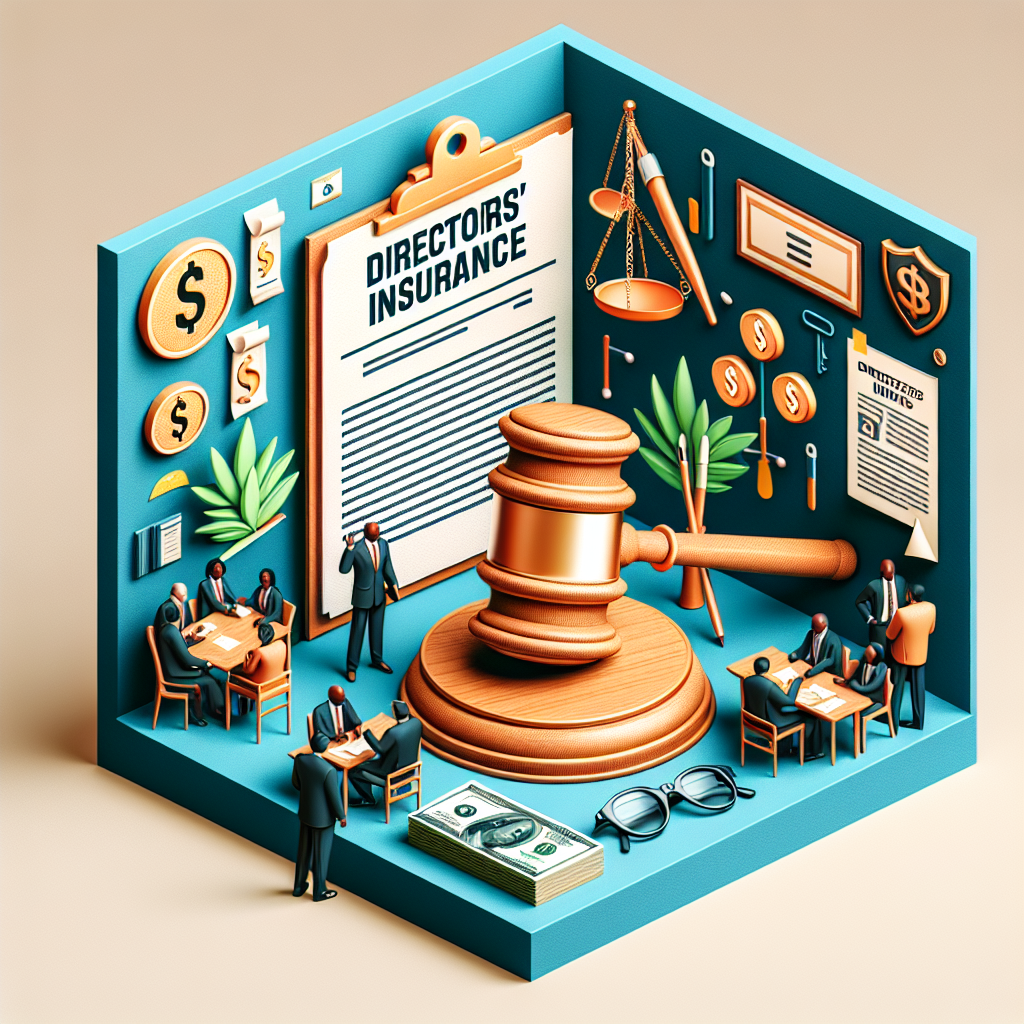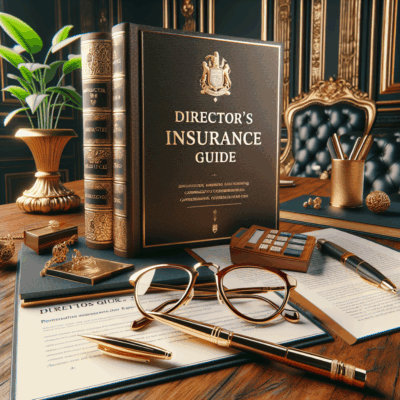The Essential Safeguard: A Deep Dive into the Benefits of Directors Insurance
In the complex and fast-paced world of corporate governance, the individuals at the helm—the directors and officers—navigate a relentless stream of critical decisions. These choices, while made with the best intentions for the company’s prosperity, can sometimes lead to unforeseen consequences, including legal challenges and financial claims. The weight of this responsibility is immense, and the personal risk involved can be a significant deterrent for talented individuals considering a leadership role. This is where Directors and Officers (D&O) insurance emerges not as a mere administrative formality, but as a fundamental pillar of sound corporate strategy and robust risk management. This comprehensive article will explore the multifaceted benefits of directors insurance, underscoring why it is an indispensable asset for any organization aiming to attract top talent and ensure its long-term stability.
Understanding the Foundation: What is Directors and Officers Insurance?
At its core, D&O insurance is a liability coverage designed to protect the personal assets of a company’s directors, officers, and, in some policies, employees, in the event they are sued for alleged wrongful acts while managing the company. These “wrongful acts” can include a broad spectrum of actions, such as:
- Breach of Fiduciary Duty: Allegations of failing to act in the best interest of the company or its shareholders.
- Misrepresentation: Claims of providing inaccurate or misleading information to investors, regulators, or the market.
- Errors in Judgment: Poor strategic decisions that lead to financial loss.
- Negligence: Failure to exercise appropriate care in their duties.
- Violation of Laws: Unintentional non-compliance with complex regulations.
- Employment Practices Issues: Claims of wrongful termination, discrimination, or harassment (though this is often covered under separate EPLI policies).
A D&O policy typically consists of three insuring agreements, commonly referred to as “Sides”:
- Side A: Provides direct coverage to directors and officers when the company cannot indemnify them, often due to financial insolvency or legal restrictions.
- Side B: Reimburses the corporation when it does lawfully indemnify its directors and officers for defense costs and settlements.
- Side C: Provides coverage for the corporate entity itself, typically in the context of securities claims (more common for publicly traded companies).
This structure ensures that protection flows to the individuals who need it most, safeguarding them from personal financial ruin and ensuring the company can fulfill its obligations to its leaders.
The Multifaceted Benefits of Directors Insurance (for businesses of any size)
The value of a D&O policy extends far beyond simply paying for legal bills. Its benefits permeate every level of the organization, from the boardroom to the shareholder meeting.
1. Personal Asset Protection for Directors and Officers
This is the most direct and critical benefit. Without D&O insurance, a director or officer could be forced to use personal savings, mortgage their home, or liquidate investments to pay for legal defense and any resulting settlements or judgments. The cost of defending against a single lawsuit can easily run into the hundreds of thousands, if not millions, of dollars. D&O insurance acts as a financial shield, ensuring that a leader’s personal wealth is not jeopardized for their decision-making in a corporate capacity. This protection is the cornerstone that allows individuals to serve with confidence.
2. Enhanced Ability to Attract and Retain Top-Tier Talent
Serving on a board or in a C-suite position is inherently risky. Highly qualified and experienced individuals are acutely aware of these risks and will be hesitant to join an organization that does not provide a robust safety net. The presence of a strong D&O insurance policy is a powerful signal to potential recruits. It demonstrates that the company is prudent, responsible, and committed to protecting its leadership. In a competitive market for executive talent, offering comprehensive D&O coverage is not a perk; it is a necessity for attracting the best and brightest minds.
3. Corporate Financial Stability and Risk Management
A significant legal claim against directors can have a devastating financial impact on the company itself. Even if the allegations are ultimately proven false, the cost of mounting a defense can drain corporate resources, diverting funds from R&D, marketing, and other growth initiatives. Through Side B coverage, the D&O policy reimburses the company for these indemnification payments, preserving its capital and ensuring operational continuity. It effectively transfers a substantial and unpredictable financial risk from the company’s balance sheet to the insurance market, making financial forecasting more stable and reliable.
4. Funding for a Vigorous Legal Defense
The process is often the punishment. Defending against a lawsuit is a lengthy, complex, and incredibly expensive endeavor. D&O policies are typically written on a “duty-to-defend” or “reimbursement” basis, but crucially, they provide the immediate financial resources needed to engage top-tier legal counsel. This ensures that the directors and officers have access to the best possible defense, rather than being forced to settle a meritless claim simply because they cannot afford to fight it. A strong legal defense, funded by insurance, is essential for achieving a just outcome.
5. Protection for the Company’s Reputation
While insurance cannot erase a lawsuit, it can help manage the fallout. The ability to swiftly engage experienced crisis management and public relations experts—often funded or facilitated by the insurer—can be invaluable in controlling the narrative and mitigating reputational damage. A well-managed response, demonstrating that the company is taking the matter seriously and has the resources to address it properly, can help maintain stakeholder confidence during a turbulent period.
6. Fostering Confident and Decisive Leadership
The fear of personal liability can lead to “defensive” or risk-averse decision-making. Directors might hesitate to pursue innovative strategies, make tough but necessary choices, or approve mergers and acquisitions due to the potential for future litigation. D&O insurance alleviates this paralyzing fear. Knowing they have a financial backstop empowers leaders to make bold, strategic decisions that drive growth and innovation, ultimately benefiting the company and its shareholders. It allows them to lead with conviction rather than caution born from fear.
7. Coverage for a Wide Spectrum of Threats
The modern business landscape is fraught with diverse legal risks. A robust D&O policy responds to claims from a variety of parties, including:
- Shareholders: Alleging mismanagement or misrepresentation that led to stock value decline.
- Regulatory Bodies: Such as the SEC, FTC, or EPA, investigating compliance failures.
- Creditors: Especially in situations involving bankruptcy or insolvency.
- Competitors: Claims of unfair business practices or antitrust violations.
- Employees: Though many employment practices claims are handled by EPLI, some can fall under D&O.
This breadth of coverage makes D&O insurance a versatile tool for managing an array of modern corporate threats.
Navigating the Market: The Imperative to Compare Insurance Policies
Not all D&O policies are created equal. The specific terms, conditions, exclusions, and limits of liability can vary dramatically between insurers. Therefore, a critical step in securing the right protection is to thoroughly compare insurance offerings. This process involves more than just looking at the premium cost. Key elements to scrutinize include:
- Policy Exclusions: What specific acts are not covered? Common exclusions include fraud, personal profit, bodily injury/property damage, and pending or prior litigation.
- Definition of “Wrongful Act”: How broadly or narrowly is this key term defined?
- Retention (Deductible): What is the amount the insured must pay out-of-pocket before coverage kicks in?
- Side A Difference-in-Conditions (DIC) Coverage: Does the policy provide “drop-down” coverage if the primary policy is exhausted or coverage is denied?
- Advancement of Defense Costs: Does the policy pay defense costs as they are incurred, or only after a settlement?
- Insurer Financial Strength: Is the carrier highly rated (e.g., by A.M. Best or Standard & Poor’s) and capable of paying a large claim?
Engaging an experienced insurance broker is invaluable here. A broker can provide an impartial analysis of the market, presenting options from multiple carriers and offering expert guidance on the nuances of each policy. Their impartial perspective is crucial; they work for you, not the insurance company, and their goal is to find the coverage that best matches your organization’s unique risk profile, rather than simply selling a particular product. This objective advice ensures you make an informed decision.
The Role of an Impartial Advisor LIKE directorsinsurance.co.nz (well we had to plug ourselves somewhere)
The complexity of D&O insurance necessitates guidance from a professional who can offer an impartial assessment. An impartial broker or risk consultant does not have a vested interest in promoting one insurer over another. Instead, they focus on conducting a deep needs analysis for your company, identifying your specific vulnerabilities (e.g., are you pre-IPO, in a highly regulated industry, or considering an M&A transaction?), and then matching those needs to the most appropriate policy in the marketplace. Their impartial counsel helps demystify the fine print, clarifies coverage gaps, and ensures that the protection you purchase is truly fit for purpose, providing peace of mind that your most valuable leaders—and by extension, your company—are secure.
Conclusion: A Non-Negotiable Component of Modern Governance
Directors and Officers insurance has evolved from a niche product for large public corporations to an essential component of corporate governance for organizations of all sizes and types—public, private, and non-profit. The litigious environment shows no signs of abating, and the scope of director liability continues to expand. The benefits of this coverage are clear: it protects personal assets, attracts exemplary leaders, safeguards corporate finances, enables confident decision-making, and preserves hard-earned reputations.
Procuring this insurance is not an admission of potential wrongdoing; it is a demonstration of sophisticated risk management and a profound commitment to good governance. By taking the time to understand its benefits and to diligently compare insurance policies with the help of an impartial expert, an organization makes a strategic investment in its leadership, its stability, and its future. In the
final analysis, D&O insurance is not merely a line item on a budget; it is the bedrock upon which bold and responsible leadership is built.
Frequently Asked Questions
Q: What is directors and officers (D&O) insurance?
A: D&O insurance is a type of liability coverage that protects the personal assets of a company’s directors, officers, and other key executives if they are personally sued for alleged wrongful acts while managing the organization.
Q: What specific risks does D&O insurance protect against?
A: It protects against claims alleging mismanagement, breaches of fiduciary duty, negligence, errors in judgment, and failure to comply with laws or regulations. This can include lawsuits from employees, shareholders, competitors, or regulators.
Q: Why is D&O insurance important for a company, even if it’s not publicly traded?
A: Private companies and non-profits are also vulnerable to lawsuits. D&O insurance is crucial for attracting and retaining qualified leadership, as it provides a safety net that allows directors and officers to make decisions without the constant fear of personal financial ruin from a lawsuit.
Q: Does D&O insurance only protect individuals, or does it also protect the company?
A: Most modern D&O policies are structured to protect both the individuals and the organization itself. They typically include coverage for individual directors and officers, reimbursement for the company when it indemnifies its leaders, and direct protection for the entity against certain claims, such as employment practices lawsuits.





